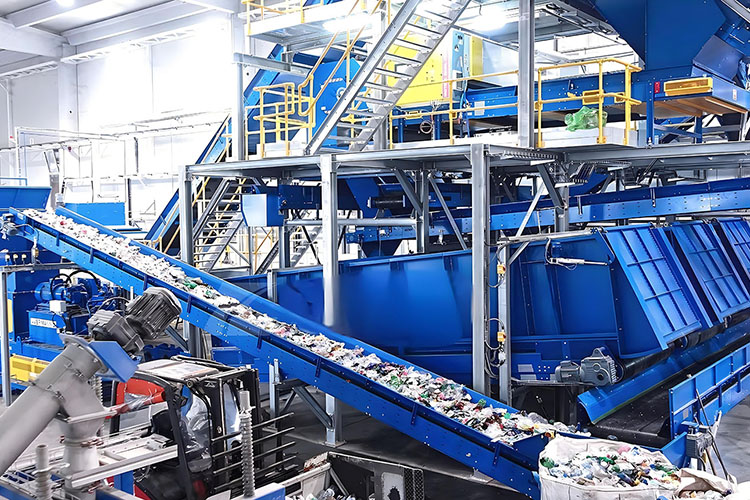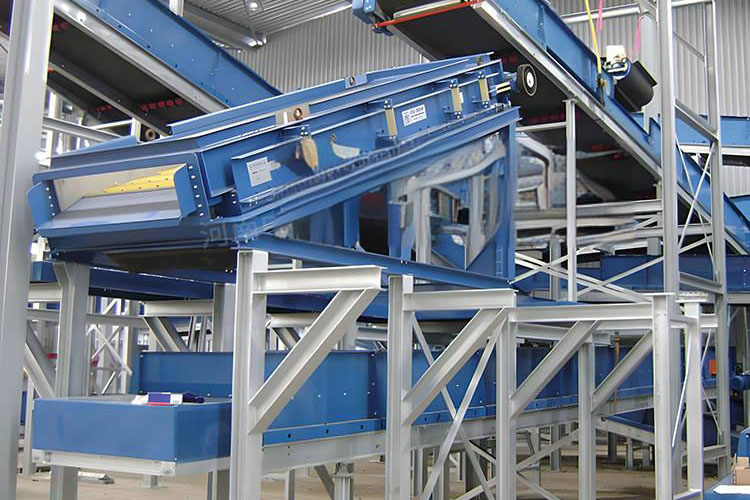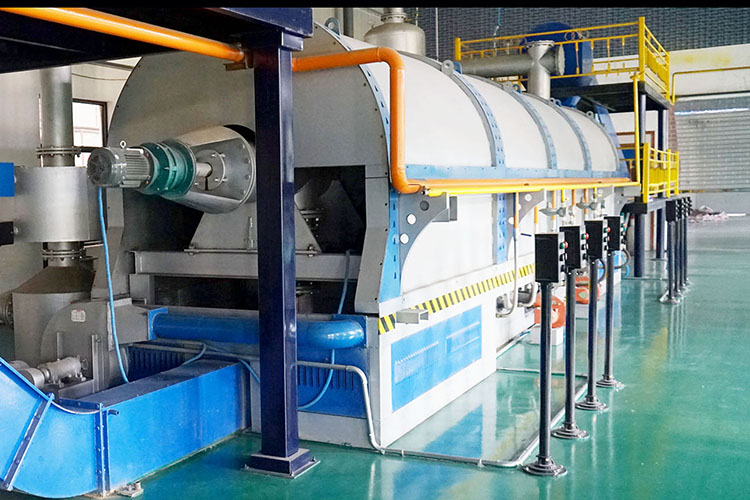With the acceleration of urbanization and the rapid development of the catering industry, the amount of kitchen waste generated is increasing day by day. How to efficiently and environmentally treat this waste has become an urgent problem to be solved. As a solution to this problem, kitchen waste treatment equipment has gradually become an indispensable part of modern urban waste management due to its advantages of environmental protection, resource utilization, and high efficiency.
The biggest advantage of kitchen waste treatment equipment is its environmental benefits. Kitchen waste contains a large amount of organic matter, and if not properly treated, direct discharge will seriously pollute water sources, air, and soil. By using kitchen waste treatment equipment, these wastes can be effectively converted into valuable resources such as organic fertilizers, biogas, or green energy. This resource utilization not only reduces the burden of garbage on the environment, but also promotes the development of circular economy, which meets the requirements of sustainable development in today's society.

In addition, kitchen waste treatment equipment also has significant advantages in processing efficiency and saving labor costs. Traditional garbage disposal methods rely heavily on manual sorting and cleaning, which is not only inefficient but also prone to management loopholes. Modern kitchen waste treatment equipment adopts automation technology, which can efficiently classify, process, and transform waste, greatly improving work efficiency and reducing labor costs. This is particularly important for large-scale catering enterprises, restaurants, and urban waste disposal centers.
Another prominent feature of kitchen waste treatment equipment is its ability to help solve the landfill pressure of kitchen waste. In many areas, the space of landfills is approaching saturation, and landfill treatment not only occupies a large amount of land resources, but also easily produces harmful substances such as leachate and methane due to garbage accumulation and decay, causing secondary pollution to the environment. By converting kitchen waste into organic fertilizers or biogas and other resources, not only can the burden on landfills be reduced, but environmental pollution can also be effectively reduced, alleviating the shortage of land resources.

With the increasingly strict environmental regulations, the disposal of kitchen waste is no longer an option, but a mandatory requirement of the law. In many cities and regions, the government has introduced relevant regulations on the classification and treatment of kitchen waste, requiring separate collection and professional treatment of kitchen waste. The promotion of this policy has provided a strong market demand for the popularization of kitchen waste treatment equipment. For example, in some large and medium-sized cities, the government has begun to implement strict supervision and inspection of the classification and treatment of kitchen waste, ensuring that all catering operators and waste treatment facilities comply with relevant regulations.
With the continuous advancement of technology, the performance and efficiency of kitchen waste treatment equipment have been significantly improved. Traditional processing equipment may require manual intervention and have slower processing speeds, while today's new equipment is more intelligent and automated, capable of intelligent sorting and processing based on the different characteristics of garbage. Not only is it more efficient, but it also optimizes energy consumption. Modern devices are also equipped with IoT technology, which can monitor the real-time operation status of devices and the progress of garbage disposal, facilitating management and scheduling, and improving the transparency and efficiency of operations.

As market demand continues to grow, the application areas of kitchen waste treatment equipment are also expanding. Not only the catering industry, but also many schools, hospitals, office buildings, residential areas and other places have begun to use this type of equipment to treat kitchen waste. The popularization and application of these devices have greatly improved the overall level of garbage classification and resource recycling in society, making positive contributions to environmental protection.
Overall, kitchen waste treatment equipment is not only an effective tool to solve the problem of kitchen waste treatment, but also a key to achieving green environmental protection and resource utilization. With the continuous promotion of government policies and technological innovation, the market prospects for kitchen waste treatment equipment will become increasingly broad, becoming an important component of future urban waste management and environmental protection.
Yongle Environmental Protection is mainly engaged in the research and development, production and sales of complete sets of technical equipment for organic solid waste disposal and comprehensive utilization. Production and manufacturing, domestic waste treatment equipment, tire pyrolysis equipment, medical waste disposal equipment, hazardous waste disposal equipment, and achieve efficient and comprehensive utilization of resources through independently developed low-temperature anaerobic pyrolysis equipment technology solutions.
Tags:The advantages and market prospects of kitchen waste treatment equipment,kitchen waste treatment equipment,YONGLE GROUP
 Latest news
Latest news


























